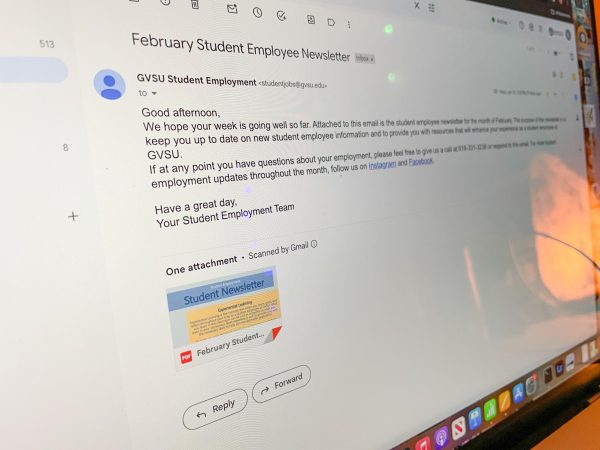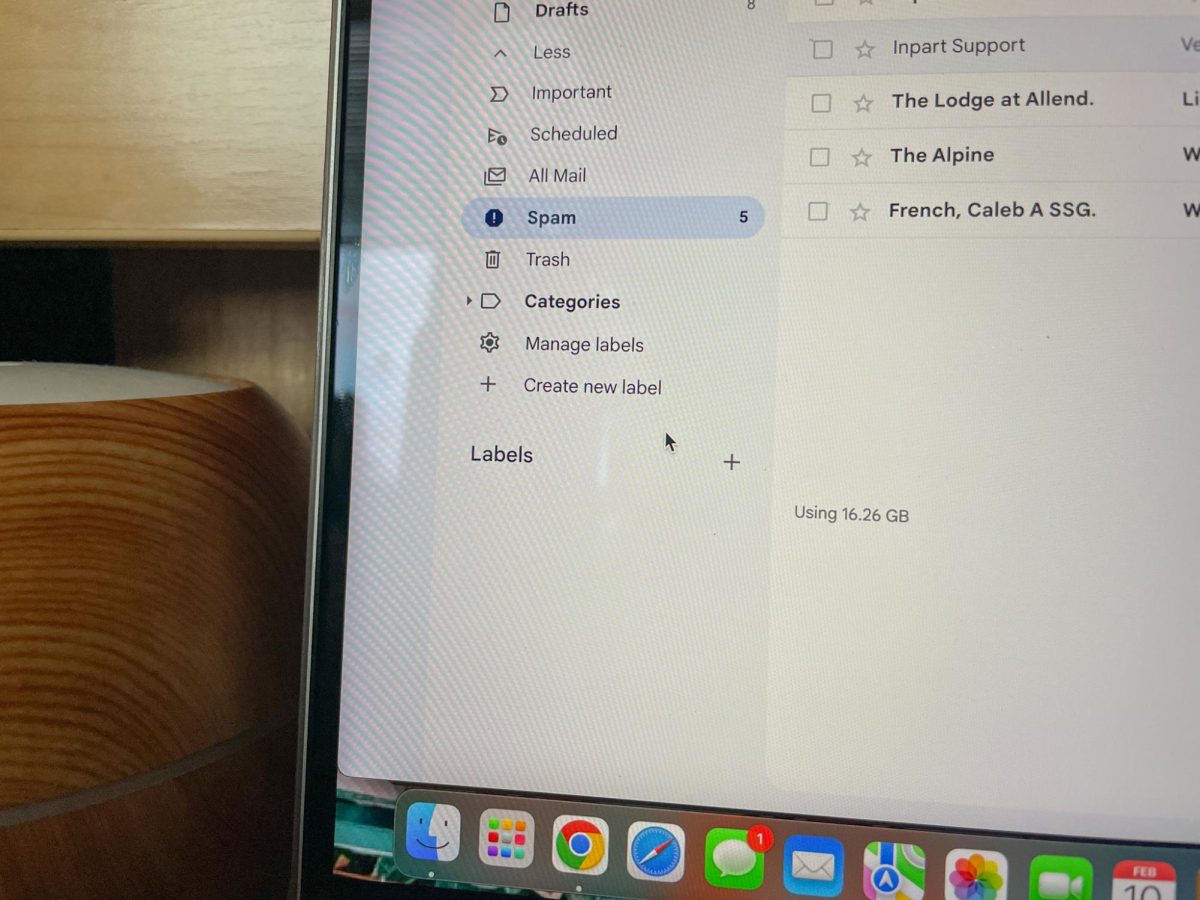February’s Student Employee Newsletter included a warning to Grand Valley State University students to be vigilant of phishing emails.
The newsletter urged students to forward any suspicious emails to the Office of Student Employment to be investigated. According to the Department of Public Safety at GVSU, the number of scam emails has been consistent from semester to semester, with one new potential phishing email sent to the Student Employment Office about every week.
“When a cybercriminal hacks a student account, they use their email to distribute more phishing messages to other universities,” said Morgan Hamlin, Information Security Analyst in the Office of the Vice President for Information Technology at GVSU.

One of the most common types of phishing emails is job scams. The GVSU Career Center was notified of a sharp increase in job scams in which hackers posed as students, faculty or members of Handshake, a campus employment website. The GVSU Career Center advised students to use extreme caution when responding to a job opportunity email. The most common job scam that student employees are receiving is an offer for personal assistant positions. These scams typically offer students a job without needing a formal interview and give a short time limit to respond.
“Never respond to or give out personal information to anyone via email unless you are absolutely sure the job offer is legitimate,” said Katelyn Johnson, Associate Director of Student Employment at GVSU. “If students are searching for a job, they can check Handshake for off-campus employment and Workday for on-campus employment. Both are safe and effective ways to find a job while attending GVSU.”
According to GVSU’s Cyber Safety website, there are many ways to identify a phishing email. Some of the most common red flags include:
- Generic greetings
- Emails written with a sense of urgency
- Unexpected attachments
- Grammatical or spelling errors
- Requests for personal information
Potential phishing emails and malware attacks can be reported through the GVSU Cyber Safety site. The Office of Student Employment has a similar feature that allows students to report potential scam emails. The emails are then investigated for signs of fraud, such as the sender offering a hefty paycheck for minimal work. If several indicators hint that an email may be a scam, it is sent to GVSU’s Information Technology (IT) office or Grand Valley Police Department (GVPD) for further investigation.

“There have always been scams, but with email, you can reach out to anyone on the planet. Many times, in investigations, these email scams originate overseas or across the country,” said Leah Heaton, Assistant Director of Public Safety and GVPD Captain.
GVSU’s IT team has worked to enhance cyber defense, educating students on how to be safe online and respond to reports of phishing. The Department of Public Safety has adopted similar protocols to ensure students are safe both on campus and online.
“At Grand Valley State University, we understand that in today’s interconnected world, safeguarding sensitive information and digital assets is paramount,” according to GVSU’s Cyber Safety website.
According to an information guide from GVSU’s Cyber Safety, 96% of scam incidents and breaches are conducted through email.
The main goal of most hackers is to obtain confidential data such as financial information or access to bank accounts. Hackers often use email as a way to extract personal information by either requesting it or including malicious links. A majority of the time, hackers are looking to make money, either directly taking it from an account or selling personal information online.
“The best way to stop these scams is to educate yourself on what these types of scams look like so you do not fall victim,” said Heaton. “If you receive these scam emails, reporting to Grand Valley’s IT department can help the compromised email address be unable to continue to be used to scam others.”






















